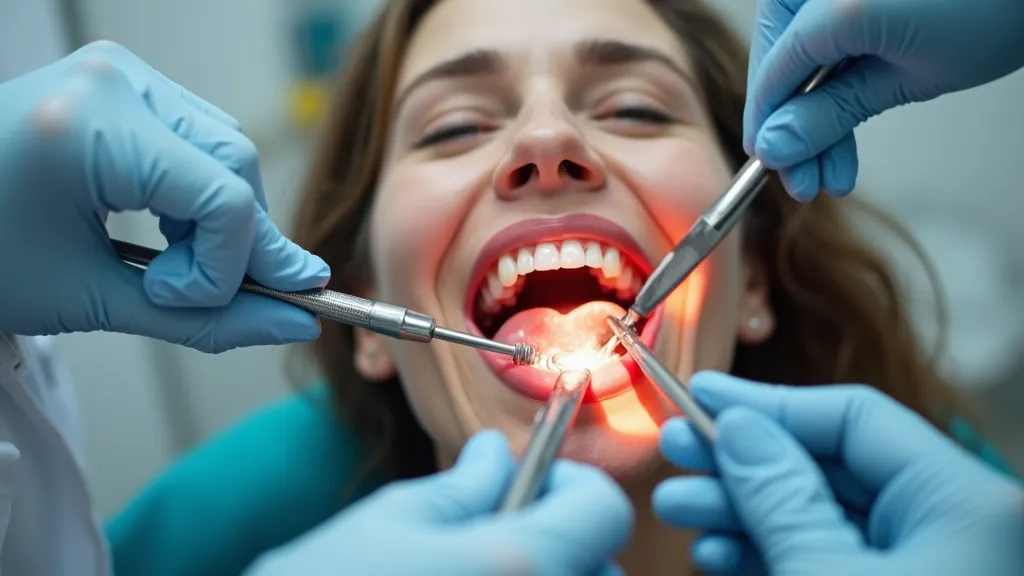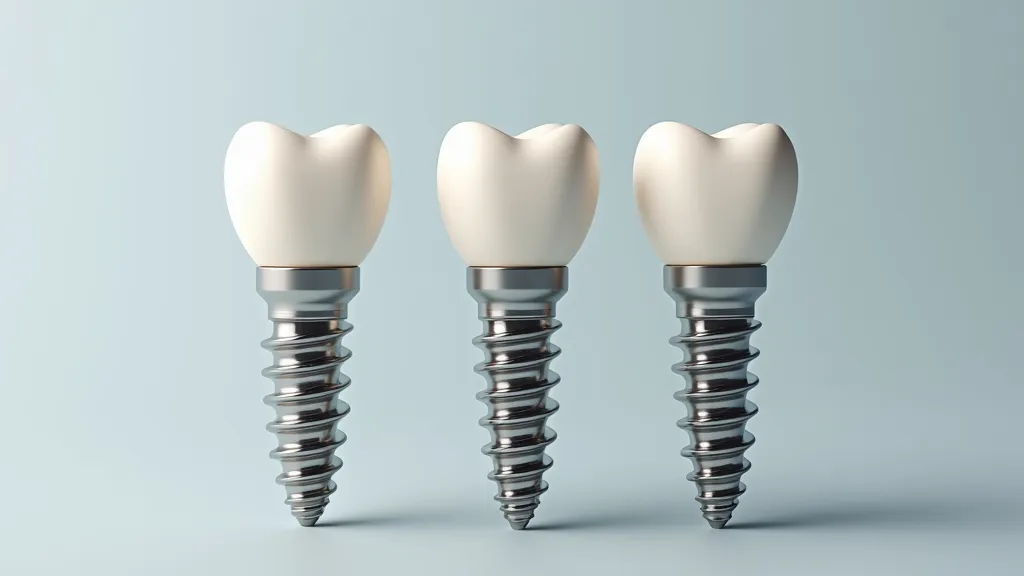Good Dental Implants for Seniors
This guide explores the benefits and processes related to good dental implants for seniors. Dental implants serve as a durable solution to tooth loss, particularly advantageous for seniors aiming to regain their oral functionality and enhance their quality of life. The article provides detailed insights into obtaining these implants at a lower cost, comparing services and price ranges across English-speaking countries.

Understanding Good Dental Implants
Good dental implants have revolutionized dental care, providing robust and long-lasting solutions for patients, particularly seniors, who struggle with tooth loss. These implants consist of titanium posts surgically placed into the jawbone, serving as roots for replacement teeth. Unlike dentures, they offer greater stability and imitate the natural look and function of real teeth, significantly improving the quality of life.
Dental implants not only restore the ability to chew and speak effectively but also contribute positively to one’s self-image and confidence. The design of these implants allows them to integrate with the jawbone, which helps maintain bone density and prevents the sunken appearance often associated with tooth loss. This natural integration is a key feature that differentiates implants from other tooth replacement options.
The Importance for Seniors
As individuals age, maintaining oral health becomes crucial not just for nutrition but also for overall health. Tooth loss can lead to dietary restrictions, speech issues, and diminished self-esteem. Good dental implants help seniors overcome these challenges by providing a reliable solution that integrates seamlessly into daily life.
Furthermore, the benefits of dental implants extend beyond aesthetics; they also play a critical role in health management for older adults. The ability to chew better helps ensure that seniors maintain a balanced diet, which is essential for their overall well-being. Additionally, studies have shown a strong link between oral health and systemic health. Chronic conditions such as diabetes, heart disease, and respiratory issues can be exacerbated by poor oral health, making it even more important for seniors to invest in effective dental solutions.
With advancements in technology, the process of getting dental implants has become much less invasive, causing reduced discomfort and faster recovery times. New techniques and materials are being developed every year, further enhancing the safety and effectiveness of dental implants.
Cost Considerations in English-speaking Countries
While the benefits are clear, the cost of dental implants can be daunting. In regions such as the United States and Canada, prices for single implants range from $3,000 to $6,000 USD and CA$3,000 to CA$5,500 CAD respectively. Nevertheless, it’s essential to break down these costs into components such as the initial consultation, necessary imaging (like X-rays or CT scans), the surgical procedure itself, and any follow-up treatments. Various financing options exist that can make dental implants more accessible, and it's worth exploring these to make the best decision.
| Website | Focus |
|---|---|
| Dental Views | Offers low-cost dental implant solutions with detailed treatment and pricing information. |
| Atlantic Dental Group | Provides a wide range of dental services, including implants, with the option to book appointments easily. |
| DentaVacation | Specializes in dental tourism, providing cost comparisons and travel arrangements for affordable care abroad. |
source: Dental Views, Atlantic Dental Group, DentaVacation
Steps to Acquire Low-Cost Dental Implants
1. Research and Consultation: Begin by researching clinics that offer low-cost implants. Consider consultations to understand the specific requirements and costs involved. Use reputable sources and read patient reviews to gauge the quality of services provided.
2. Evaluate Insurance Options: Some dental insurance plans may cover part of the procedure. Check with providers like ADHP for tailored insurance options. In addition, some local governments and organizations offer assistance programs for seniors that can help cover part of the cost of dental care.
3. Consider Dental Tourism: Websites like DentaVacation highlight international destinations offering affordable yet high-quality dental care. Research these options thoroughly, taking into account travel costs, safety standards, and post-operative care, to see if they are viable alternatives.
4. Utilize Payment Plans: Many clinics, such as those listed, offer payment plans that allow patients to spread the cost over time making it more manageable. It's advisable to inquire about interest rates, monthly payment amounts, and total financing costs to determine the most affordable option.
Country-wise Cost Analysis for Senior Implants
Let’s explore the cost ranges for single dental implants in various English-speaking regions, noting how they correspond to local economic conditions and the availability of dental care resources:
| Country | Currency | Price Range |
|---|---|---|
| United States (US) | USD | $3,000 - $6,000 |
| United Kingdom (GB) | GBP | £2,000 - £2,500 |
| Australia (AU) | AUD | AU$3,500 - AU$6,500 |
| Canada (CA) | CAD | CA$3,000 - CA$5,500 |
In addition to these costs, factors like the complexity of the case (e.g., bone grafting may be necessary for some patients), the type of implant used, and the experience of the dental surgeon can all impact final pricing. It's essential for seniors to discuss these details in their consultations to ensure they have a clear understanding of the total expected costs.
FAQs on Dental Implants for Seniors
Q: How long do dental implants last?
A: With proper care, dental implants can last a lifetime. Regular dental check-ups and oral hygiene are crucial. They rely on both the quality of the initial procedure and the patient's continued commitment to oral health.
Q: Are dental implants safe for seniors?
A: Yes, with advancements in dental technology, implants are safe for seniors. A thorough medical evaluation is advised before the procedure, as some existing health conditions may influence the type of anesthesia used and the overall healing process.
Q: What is the recovery time for dental implants?
A: The healing process can vary from patient to patient but generally ranges from a few weeks to a few months, depending on individual conditions. Factors such as age, overall health, dental hygiene, and smoking status can all affect healing times.
Q: What are the risks associated with dental implants?
A: As with any surgical procedure, there are risks involved. These can include infection, nerve damage, and implant failure, though these risks are relatively low. Engaging an experienced dental professional can significantly mitigate these concerns.
Q: Is there a minimum age for dental implants?
A: Though there is no strict minimum age, implants are typically placed in adults whose jawbone has completed its growth, usually between the ages of 16 and 18. For seniors, age itself is not a disqualifying factor; rather, the overall health and dental condition are more critical considerations.
Conclusion
Good dental implants offer seniors an invaluable method to restore both the functionality and aesthetics of their teeth. The procedure, while initially costly, is a worthwhile investment considering the long-term advantages it provides. Options for financial assistance, alongside the increasing accessibility of dental care, empower seniors to make informed choices about their oral health. While the costs may vary, numerous resources, including low-cost clinics and insurance plans, are available to support seniors in accessing these life-enhancing dental treatments.
Moreover, it is critical to begin conversations about dental health as early as possible. Preventative care, coupled with timely interventions for those facing tooth loss, can lead to better health outcomes and an overall enhanced quality of life. Embracing technology, like 3D imaging and computer-guided surgery, further ensures that seniors can receive the latest and most effective treatments available.
Disclaimer
The above information comes from online resources, and the data is as of October 2023. Dental implant prices are for reference only and may vary based on region, clinic, and doctor. Always consult a qualified healthcare provider for personalized advice and treatment plans.
References:










